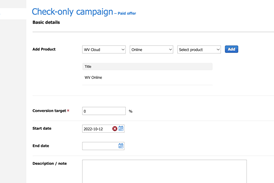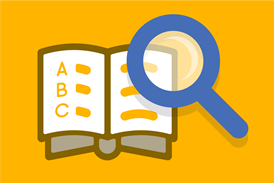All User guides articles – Page 10
-
User guides
Recipients Filters
Select which customers will receive the issue as part of this IFRA process.
-
User guides
Notification Letter
The notification letter page of a direct debit run displays all customers who have had a change to their direct debit.
-
User guides
Reconciliation
The reconciliation page of a direct debit run shows all AUDDIS and BACS requests which have been rejected.
-
User guides
Cheque Processing
Monitor cheque payments for reconciliation purposes and confirm when payment is received.
-
User guides
Payment Management
Displays all failed payments from a debit/credit card or direct debit.
-
User guides
Fulfilment Management
Manage the fulfilment and distribution of individual items to your customers. This includes back issues of a print-based magazine, sundry items such as free gifts, and all issues of a digital product.
-
User guides
Issues List
Print and digital products are issue-based. Each sequential issue is distributed to subscribers when they are published.
-
User guides
My Dashboard
The My Dashboard page allows you to create an overview of the data in ADvance.
-
User guides
Products
ADvance defines a product as a means of delivering content to your customers. For example, print magazines, access to online content, apps, events, digital editions and single items such as books.
-
User guides
Product Details
The fields on the product details page vary according to the product type
-
User guides
Understanding Business Intelligence filters and exposing user data
A party record is created for each customer or company who registers or purchases a product. This user data can be viewed per party, or the entire data can be searched across using Business Intelligence.
-
User guides
Entitlement Settings
Default entitlement settings can be set for your organisation as a whole. Each brand in your organisation may have its own entitlement settings and each product can use either the default setting or set specific rules for the brand or product.
-
User guides
Lapsed Time Period
The lapsed time period determines if a subscription order is considered by default to be a renewal or a new subscription when a party re-subscribes to a product after their previous subscription ends.











